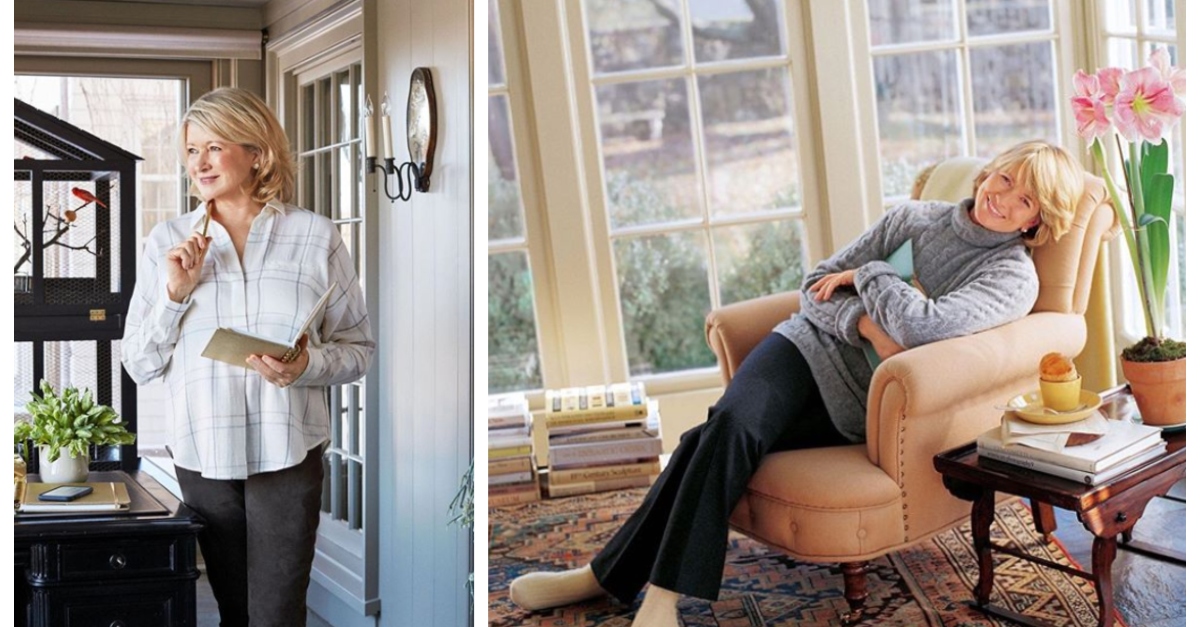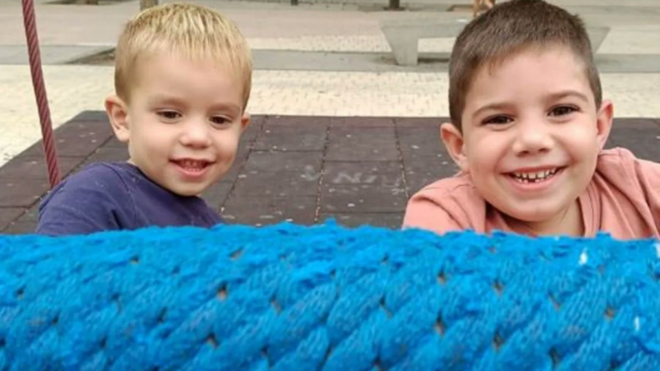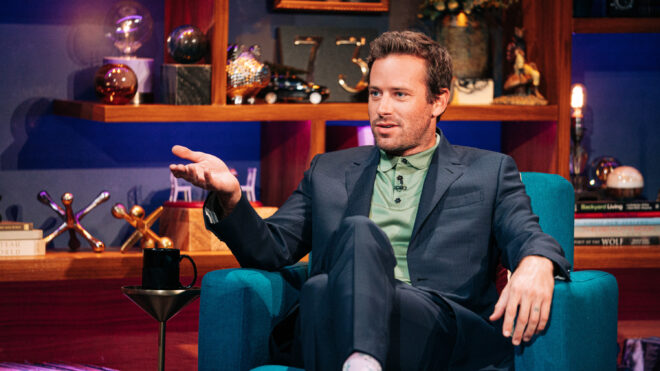
Martha Stewart recently gave an interview on Shop the Stars With Jill Martin in which she discussed her childhood and, among other things, her infamous time spent in federal prison. Martha also sat down with Jill to chat about her successful empire, and she shared items from her California Closets line, her QVC line, and her line of office supplies at Staples.
Jill began the interview by explaining why she asked Martha to be there: "I wanted this interview to be a little bit about not only 'What would Martha do,' because that's always the saying, but things that people wouldn't know about you because I learned so much from those late-night chats." Jill and Martha originally met while they were both pulling long hours at QVC.
Martha says that she credits her innate curiosity with much of her success: "I'm curious about everything. I'm always looking for new things, new ways to do things — that's my business."
Martha also spoke about her childhood, where she learned the value of working hard: "I was one of six kids and two working parents. We were taught to work, we were encouraged to pay our own way, and we all did."
After she graduated college, Martha began working as a stockbroker. She says that this is where she learned how to build a strong company.
She ultimately left her job in favor of having children. While raising her kids, she started her own catering business and eventually catered and planned high-end events in New York City. "I was a party planner as well as a caterer," she said. "That built up to a million-dollar business."
She began writing cookbooks as a springboard step from her job as a caterer and event planner, and she eventually went on to build the empire that we all know today. In 1999, Forbes named her as the first female self-made billionaire. She said, "I took my company public, and we had a very nice, long run as a very fine, debt-free company in America."
Martha also added that her childhood helped her in a lot of ways. "I was just a little girl from Nutley, New Jersey. I didn't know how to spend money. I knew how to make money." Her staff was also essential: "My biggest break really was starting a fine company with a fine staff and a fine bunch of colleagues. That, to me, really meant the most."
Jill also asked Martha about the low points in her personal life and career, and Martha was quick to answer with two big ones: "Having serious personal problems like my marriage dissolving and the horrible legal problem I had, where I had to go to jail for five months — that was a terrible time."
Martha Stewart's trial and jail time made huge waves at the time. She was embroiled in an insider trading scandal and ultimately accused and convicted of conspiracy, obstruction of justice, and lying to federal investigators. She ended up spending five months in federal prison, along with five months of house arrest and two years of probation.
Martha said she pushed through more difficult times by keeping a strong sense of self — and because her customers believed in her. "It's all about what you are and who you are. And I never lost my customers because my customers believed in me. That gave me the wherewithal to just continue along my happy path."
The only other time Martha has spoken in detail about her experience in prison was in 2017. She told Katie Couric, "It was horrifying, and no one — no one — should have to go through that kind of indignity, really, except for murderers, and there are a few other categories. But no one should have to go through that. It’s a very, very awful thing."
She did say she found prison to be a "growth experience," but that she didn't gain anything positive from the experience on the whole. "That you can make lemons out of lemonade? What hurts you makes you stronger? No. None of those adages fit at all. It’s a horrible experience. Nothing is good about it, nothing."
Fortunately, since 2004 Martha has been able to make a total comeback and is now celebrated just as much as she was before the scandal. She also doesn't believe she should be identified with her experience: "One thing I do not ever want is to be identified — or I don’t want that to be the major thing of my life. It’s just not fair. It’s not a good experience and it doesn’t make you stronger. I was a strong person to start with and thank heavens I was. And I can still hold my head up high and know that I’m fine."




